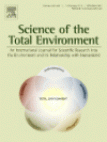Luong et al 2014
Inferring time-variable effects of nutrient enrichment on marine ecosystems using inverse modelling and ecological network analysis
 Despite the restrictions imposed by the ever increasing legislation, anthropogenic nutrient inputs continue to be a worldwide threat to our marine ecosystems. The resulting elevated nitrogen and phosphorus concentrations can promote intensive algal blooms which may decrease transparancy, deplete oxygen and change the composition of the fish community. In recent years, these ecosystem-level consequences of anthropogenic nutrient enrichment are being studied from a topological perspective (ie. who eats whom). However, it has been noted that this perspective is insufficient to understand the magnitudes of energy and materials that flow through natural food webs. To circumvent this, we used a mesocosm approach combined with linear inverse modelling to estimate carbon flows in a foodweb subjected to different nutrient treatments. In doing so, we found that the systems activity is positively but nonlinearly affected by the addition of nutrients. Surprisingly, detritus appears to be a crucial, if not predominant, driver of the ecosystem functioning under all nutrient conditions.
Despite the restrictions imposed by the ever increasing legislation, anthropogenic nutrient inputs continue to be a worldwide threat to our marine ecosystems. The resulting elevated nitrogen and phosphorus concentrations can promote intensive algal blooms which may decrease transparancy, deplete oxygen and change the composition of the fish community. In recent years, these ecosystem-level consequences of anthropogenic nutrient enrichment are being studied from a topological perspective (ie. who eats whom). However, it has been noted that this perspective is insufficient to understand the magnitudes of energy and materials that flow through natural food webs. To circumvent this, we used a mesocosm approach combined with linear inverse modelling to estimate carbon flows in a foodweb subjected to different nutrient treatments. In doing so, we found that the systems activity is positively but nonlinearly affected by the addition of nutrients. Surprisingly, detritus appears to be a crucial, if not predominant, driver of the ecosystem functioning under all nutrient conditions.
Scientific abstract
We combined data froman outdoor mesocosm experiment with carbon budget modelling and an ecological network analysis to assess the effects of continuous nutrient additions on the structural and functional dynamics of a marine planktonic ecosystem. The foodweb receiving no nutrient additions was fuelled by detritus, as zooplankton consumed 7.2 times more detritus than they consumed algae. Nutrient supply instantly promoted herbivory so that it was comparable to detritivory at the highest nutrient addition rate. Nutrient-induced food web restructuring reduced carbon cycling and decreased the average number of compartments a unit flow of carbon crosses before dissipation. Also, the efficiency of copepod production, the link to higher trophic levels harvestable by man, was lowered up to 35 times by nutrient addition, but showed signs of recovery after 9 to 11 days. The dependency of the food web on exogenous input was not changed by the nutrient additions.
Full reference
Luong AD, De Laender F, Olsen Y, Vadstein O, Dewulf J, Janssen C, 2014. Inferring time-variable effects of nutrient enrichment on marine ecosystems using inverse modelling and ecological network analysis. Science of the Total Environment, 493, 708-718. DOI: 10.1016/j.scitotenv.2014.06.027
